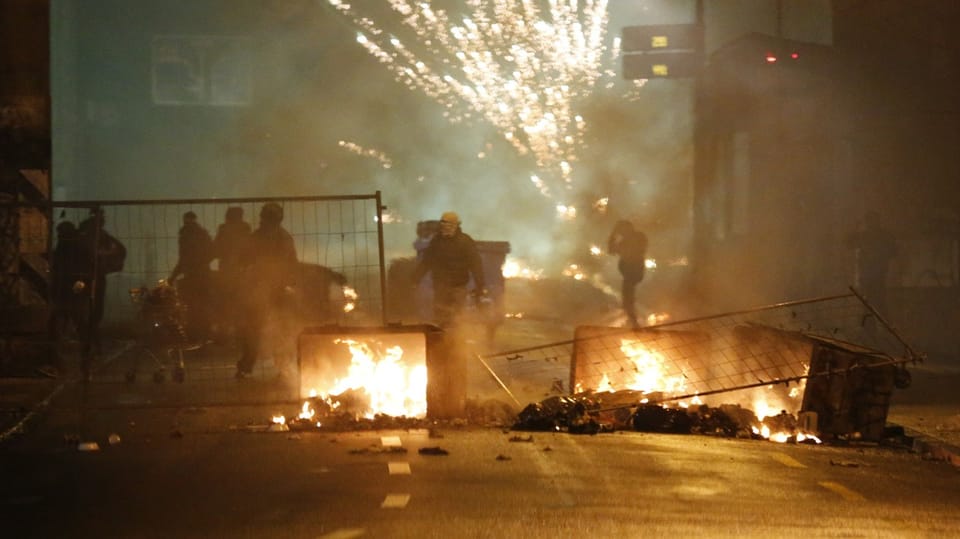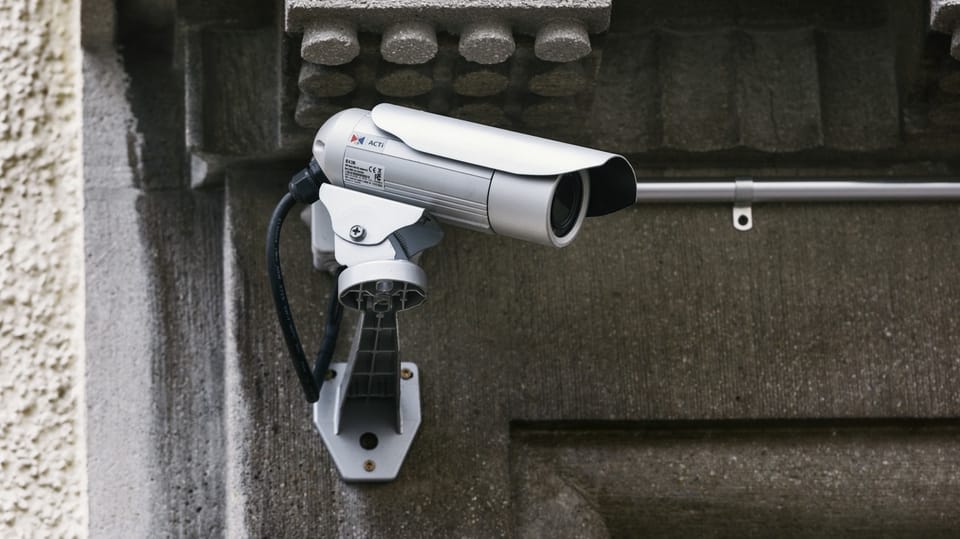Contents
The canton wants to be able to force municipalities to keep an eye on hotspots with video surveillance. This is debatable.
It’s all about this: In recent years there have been repeated fights, muggings, riots and also sexual assaults on the Berner Schützenmatte and at the riding school. The city refuses to monitor the area with video cameras. The authorities, on the other hand, have mobilized additional security people, and the situation has calmed down a bit, at least externally.
Legend:
The canton of Bern wants to be able to force the city to install video cameras in public places “with an increased risk”.
Keystone/Christian Beutler
This is the crux: Nevertheless, the canton of Bern now wants to use the partially revised police law to force the city to install video surveillance in public places “with an increased risk”. The canton could reorder this under certain circumstances. The cantonal parliament will decide on this and other points on Tuesday.
This is what the security director says: Once as a city councillor, now as a cantonal security director, FDP government councilor Philippe Müller has been campaigning for effective measures at the “hotspot” Bollwerk/Reitschule for years. This also includes video surveillance, which the city rejects. “In the end, the canton has a supervisory function. This is also the case with the finances: If a municipality does not have it under control, the canton can intervene, »Müller argued to SRF.

Legend:
Autonomous set fire to containers: There were massive riots in front of the riding school in 2016.
Keystone/Luke Lehmann
Opponents of the police law say: Government Councilor Müller’s demand is politically controversial. Red-Green in particular is defending itself against the encroachment on community autonomy: “With the police law, the population could no longer decide whether they think it’s right for a place to be video-monitored or not,” says SP councilor Edith Siegenthaler. It is more important that places are enlivened.
What proponents say: SVP Councilor Andrea Gschwend-Pieren complains that only a few hotspots in the canton would be affected by the new regulations. “If you can order video surveillance there, then I promise myself that you can get violent crimes under control.” The concerns of the municipalities were taken into account in the law. “If red-green still has a problem with video surveillance, then it’s just a bit anti-police.”
Other cities do: Knife fights and drug trafficking: The Dreirosenanlage in Basel has been making negative headlines for months. The park has turned from a popular leisure meeting place into a “no-go area” for many. The authorities have now reacted: the facility has been filmed by 16 cameras since mid-August. Around three weeks after the start of video surveillance, the situation is actually calming down, according to Basel security director Stephanie Eymann on SRF.
This is what the expert says: Francisco Klauser, professor of geography at the University of Neuchâtel, has provided scientific support for projects similar to those in Basel. He emphasizes that video surveillance is not a magic bullet. Video cameras could calm the situation temporarily. In the long term, however, the benefit is small. This is shown by a comparable example from Geneva, where a neighborhood was monitored by video cameras for two years. “On the basis of very detailed police statistics, we have found that deterrence does not work in the long term,” says Klauser.
